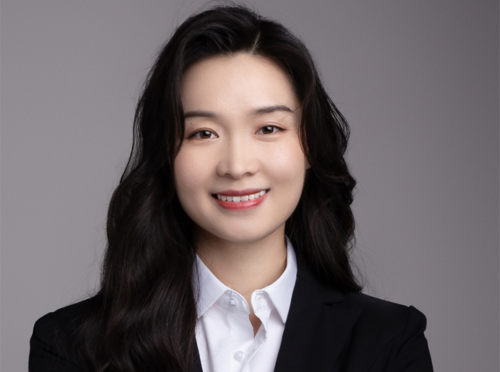Faculty
Self-introduction:
Dr. Lei Wang completed her doctoral studies at the University of Munich in 2017. She had since worked as a Benacerraf postdoctoral fellow at the Dana-Farber Cancer Institute and as a research fellow in Immunology at Harvard Medical School. As a scientist II, she joined Simcere Innovation, Cambridge to continue to advance research and practical applications in cell therapy. In 2021, She joined BayRay Innovation Center, Shenzhen Bay Laboratory as the group leader and Immunology head, dedicated to translational research. Dr. Lei Wang joined SUSTech in October 2022 as a research assistant professor, focusing on tumor immunity and advancing and identifying novel therapeutics to impact the future of medicine. Dr. Lei Wang is the first inventor in a U.S. invention patent, serves as a guest reviewer for International Immunopharmacology, Cytokine, and Cellular Immunology, and as a member of the American Association for Cancer Research and the American Association of Immunologists.
Research Interests:
Dr. Lei Wang’s research interests are tumor immunity, tolerance mechanisms in tumor immunotherapy and autoimmune diseases, mainly using CRISPR/Cas9, transgenic mouse models, cell biology to discover related genes and signaling pathways that understand tumor cells-immune cells interactions to improve gene and immunotherapies, thereby improving clinical benefit.
Professional Experience:
2022.10 - Current Research assistant Professor, School of Life Sciences, Southern University of Science and Technology;
2021.04 - 2022.10 Group Leader, BayRay Innovation Center, Shenzhen Bay Laboratory;
2020.12 - 2021.03 Scientist II, Simcere Innovation in Cambridge;
2017.07 - 2020.11 Benacerraf Postdoctoral Fellow in Immunology, Dana-Farber Cancer Institute, Harvard Medical School.
Educational Background:
2012.09 - 2017.02 Ph.D. in Immunology, University of Munich;
2009.09 - 2012.07 M.S. in Pathogen Biology, Zhengzhou University;
2005.09 - 2009.07 B.S. in Food Quality and Safety, Henan Agricultural University.
Honors & Awards:
2021 Overseas High-Caliber Personnel (Level C)A;
2019 Benacerraf Fellowship in Immunology;
2017 Magna Cum Laude, University of Munich, Germany.
Selected Publication:
1. Shen E*, Rabe H*, Luo L*, Wang L*, Wang Q, Yin J, Yang X, Liu W, Sido JM, Nakagawa H, Ao L, Kim HJ, Cantor H, Leavenworth JW. Control of Germinal Center Localization and Lineage Stability of Follicular Regulatory T Cells by the Blimp1 Transcription Factor. Cell Reports. 2019 Nov 12;29(7):1848-1861. *Denotes equal contribution
2. Nakagawa H, Wang L, Cantor H, Kim HJ. New Insights into the Biology of CD8 Regulatory T Cells. Advances in Immunology. 2018;140:1-20.
3. Wang L*, Winnewisser J*, Federle C, Jessberger G, Nave KA, Werner HB, Kyewski B, Klein L, Hinterberger M. Epitope-Specific Tolerance Modes Differentially Specify Susceptibility to Proteolipid Protein-Induced Experimental Autoimmune Encephalomyelitis. Frontiers in Immunology. 2017;8:1511. *Denotes equal contribution
4. Wang L, Cui J, Tian XY, Chen MH, Fan SY, Chen Y, Liu LN, Jiang P, Wang ZQ. Changes in larval and cell proteins after invasion of gastric epithelial cells by Trichinella spiralis infective larvae. Journal of Pathogen Biology. 2013;8(3): 199-203.
5. Wang L, Wang ZQ, Cui J. Proteomic analysis of the changed proteins of Trichinella spiralis infective larvae after co-culture in vitro with intestinal epithelial cells. Veterinary Parasitology. 2013; 194:160-163.
6. Liu RD, Wang ZQ, Wang L, Long SR, Ren HJ, Cui J. Analysis of differentially expressed genes of Trichinella spiralis larvae activated by bile and cultured with intestinal epithelial cells using real-time PCR. Parasitology Research. 2013; 112: 4113-4120.
7. Wang ZQ, Wang L, Cui J. Proteomic analysis of Trichinella spiralis proteins in intestinal epithelial cells after culture with their larvae by shotgun LC-MS/MS approach. Journal of Proteomics. 2012; 18;75(8):2375-2383.
8. Li N, Wang ZQ, Cui J, Lin XM, Li LZ, Wang L, Liu LN. Specific diagnostic antigens in excretory-secretory products from Spirometra mansoni. Journal of Pathogen Biology. 2010; 5(9): 654, 680-682.



